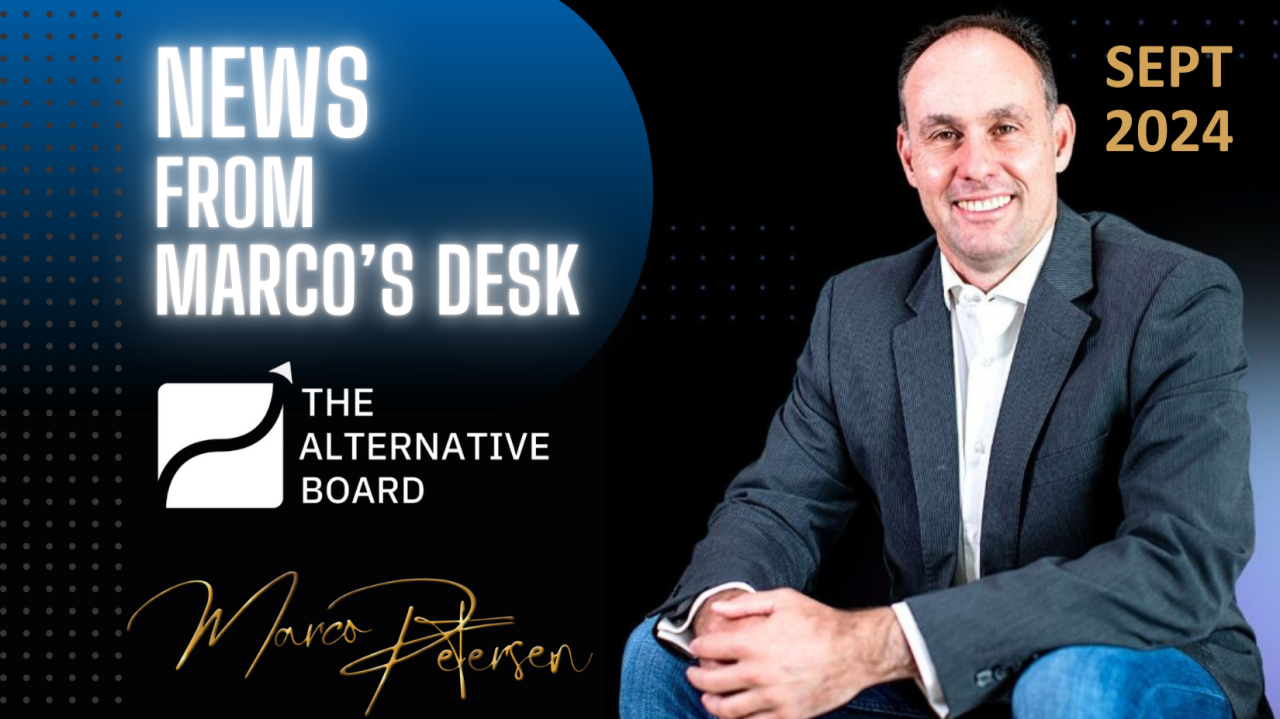
Letting Go: Overcoming the Emotional Side of Succession
Marco Petersen
★ Impact Player building value for business owners | Business Owner with The Alternative Board | Trusted Strategic Advisor | Entrepreneur ★
For years, John had dreamed of the life that awaited him beyond owning and running his successful business. He often envisioned his exit as a time of newfound freedom: more time with his wife, his children, and his grandbabies, with trips abroad, more golf, and long, relaxing walks on the beach. John believed that when the time came, all he needed to do was finalize the financial details of the merger or acquisition. However, as his exit drew nearer, he realized just how deeply his identity was intertwined with the company he had built. Surprisingly, it was this emotional connection that posed the greatest challenge to leaving his business behind.
John's story is far from unique. Many business owners, especially those who built their organisations from the ground up, develop a profound emotional attachment to their companies. To them, the business feels like an extension of themselves, crafted from their own blood, sweat, and tears. It represents years of hard work, personal sacrifice, and financial investment that created opportunities for employees and customers alike. Even under the best of circumstances, letting go can be an emotionally overwhelming experience.
The Emotional Challenges of Exiting Your Business
Relinquishing control and trusting a successor to uphold the company's values and vision can be incredibly tough. Will they maintain the culture you've cultivated? Will they care for the employees you feel so protective of? The emotional ties run deep, but there are effective strategies to help soften those feelings of loss, regret, and longing.
Mitigating Emotional Loss Through Strategic Exit Planning
Planning your exit thoughtfully, beyond just the financial and contractual aspects, is crucial for an emotionally positive transition. Here are a few strategies to consider for maintaining emotional well-being as you prepare for and execute your exit:
By considering these strategies, you can navigate your transition with confidence and embrace the opportunities that lie ahead.
I trust these insights prove valuable.
Top 5 Business Trends for 2024/2025:
1) AI and Automation
2) Sustainability and ESG
3) Hybrid Work and Employee Well-being
领英推荐
4) Personalized Customer Experience
5) Cybersecurity and Data Privacy
Focusing on these trends will help businesses stay competitive and prepared for future challenges.
Last month’s most popular LinkedIn post:
The Alternative Boar Member Case Study:
Niche Studio
Mikael Wedemeyer and Nathan Mussig run their very successful web development and design firm in Queensland, Australia. One thing that the duo learned early on is that bigger isn’t necessarily better. Business success, they realized, has as much to do with saying no to the wrong opportunities as it does with saying yes to the right ones.
“Helping business owners and their teams build better businesses in ways that change their lives.”Warm regards,
| Health & Wellness | AI Automation | Independent Partner | Entrepreneur |
2 个月Interesting Marco Petersen Thanks for sharing! ??
Founder, CEO & Author | Content Strategist helping businesses increase sales & connect with their target audience through content ppl love. DM me or email [email protected] to learn more | Thought Leader & Influencer
2 个月Very informative